Did you choose the veena or did the veena choose you?
I would say the veena chose me.
What are your early memories with the veena? What about the instrument fascinated you the most?
My earliest memories are of playfully upsetting the tuning pegs on the veena while my mother played on it. I also remember calling my mother's veena teacher by a name based on the compositions she taught. One week she would be "Shri Kanthimathim" teacher. The next week she would be "Ganamurthe" teacher.
The thing that fascinated me the most about the veena was the fact that it could mimic whatever I did with my voice.
At what point did you decide you are going to be a veena player?
I didn't decide. It just happened.
Much before I started playing the veena, my parents observed that I was able to understand music and its nuances. My entry into music was through vocal music that I learnt from my mother Smt. Sharanya Balachandran and mridangam lessons that I started with Shri Satyakumar. I continue to learn vocal from Smt Neela Ramgopal and mridangam from Shri Ranganatha Chakravarthy.
When I was about nine, my mother discovered that without any formal veena training, I was able to easily play musical phrases that she felt required training and effort. She then decided to put me under the tutelage of her guru Smt. B. Nagalakshmi, the granddaughter of the legendary Karaikudi Subbarama Iyer. I have been wedded to the veena since.
One of the dangers of being in performing arts is that you could very easily get surrounded by rasikas who heap praises on the good things in your art. Though they may do so out of sheer goodwill and their love for you, you may get trapped inside a bubble. I keep meeting people who do such great work in areas as diverse as music and afforestation. These people do not care about fame or adulation. I have been fortunate to meet sages and great souls in Thiruvannamalai. All these people are a blessing to humanity. They inspire me everyday and help me stay grounded
Do you continue to play the mridangam?
I was playing mridangam in concerts till about three years back. I stopped only to focus on the veena. It's a challenge to play the mridangam without impacting the sensitivity requirements of my veena-playing fingers. I am trying to figure out how much I can play the mridangam without compromising on my veena playing.
I continue to be very interested in aspects of layam (rhythm) though. Laya has different connotations in different aspects of music. It varies across tanam, compositions, swaraprasthara, ragam-tanam-pallavis, etc. I am very interested in the complexities of ragam-tanam-pallavis too.
Over the years of constant rigour with the veena, do you think you, in a sense, own the instrument? What is that feeling of ownership like? Can you describe it?
The veena is my second voice. It gives me one more avenue to express my music. I have never considered it a separate entity. It's an integral part of me.
Is your relationship with the veena very personal?
I am in love with the veena and completely lose myself when I play it.
You are being touted as prodigious in your prowess with the veena. How does that feel?
I try not to give this any thought. My focus is on trying to constantly improve my music and my technique.
Being talented is one thing but acquiring mastery over an instrument, quite another. Have you had to work a lot on that?
Definitely. It needs a lot of focussed hard work.
So, what is your practise routine like?
My practice routine involves identifying specific aspects of development and working in-depth on them. I work very closely with my father, especially on the manodharma (improvisatory) aspects. He learnt music for a decade in Madurai. His last guru there was Shri Sivasailam Iyer. He then learnt in Chennai from the legend Dr M. Balamuralikrishna.
Since the veena is an instrument, the playing technique is very important and I work on that as well. We also work on developing insights such as whether the musical phrase I am articulating is in sync with the larger musical context. The overall bhava comes from both the music as well as the lyrics. Understanding the meaning of the lyrics is therefore also very important to me. Each of these areas is like a huge ocean in itself.
I listen to good music when I get physically tired. Music is definitely one of my escape routes. But not the only one
Do you ever get tired of practice? Or is it your escape route?
Physically, yes. Musically, never.
I listen to good music when I get physically tired.
Music is definitely one of my escape routes. But not the only one.
If you had to pick one specific area of development as the topmost priority, which one would it be?
Carnatic music has been and continues to be enriched by the contributions of great practitioners of the art form. There are aspects that are highly developed and have acquired sophistication in vocal as well as instrumental music that enrich the core musical expression. I am in the process of understanding these inspirational developments in vocal and other instruments and bringing them into the expressive fold of the veena. An attempt to produce what my dad often refers to as "rounded musicality".
In almost all of your concerts, one sees a fearless explorer who doesn't seem to be worried about getting into uncharted waters. The music keeps flowing unimpeded in the middle of all the exploration. How do you make that happen every time?
I train with my father to be able to do what you are referring to every time I perform. The basic idea is to create a mood on stage that enables me to keep the flow going while spontaneously discovering something new. It is important to break down specific barriers to unravel such surprises. I will be very happy if there are at least two or three such moments of discovery in every concert of mine.
I rely on my musicality to start the flow. Once in flow, the sadhana one has done ensures a seamless translation of musical intent to musical expression without any loss or impediment.
Is there an "ideal veena sound"?
There is no consensus on what the ideal veena sound is. Pluck oriented (or right hand oriented) styles differ from gamaka and sahitya oriented (or left hand oriented) styles in their miking requirements. Mine is a left hand oriented style and requires sensitive miking. Magnetic pickups provide sensitivity but at the same time make the instrument sound synthetic. Though some of the much loved tones in the concert circuit are almost fully magnetic we continue our experiments to find a balance between the magnetic and acoustic components. It was a surprise for us to learn that some experienced sound engineers even consider the "noise" from left hand movement to be "natural" and want some of it. So, there is no such thing called the ideal veena sound at this point, as we understand it.
You have been home-schooled; was that a conscious decision to let you nurture your talent? If yes, in hindsight, are you happy about it?
Music had nothing to do with my parents' decision to home school me. The conventional way of schooling, which I pursued till my fifth standard, usually prioritizes academics and thus doesn't help nurture any other natural talent. My parents were not in sync with the 'herd instinct' that gets built in such institutionalized academic platforms. They researched a lot on the alternatives possible.
Home schooling helps you spend more time on subjects you love and helps you learn them deeper. A school bell no longer decides what subject you study and for how much time. You could start with basic mathematics and reach logarithms in no time! There are no barriers!
Even on the academics’ front, we figured out that the depth and pace of learning is significantly enhanced by home-schooling and relying on one's own devices to learn. My tenth standard results are a testimony to this. I am very happy about getting home-schooled as it has helped me focus and spend more time on the areas I love. It has definitely been a big boon to my musical pursuits.
What differences do you see in your upbringing compared to other kids of your age?
There is much to learn, even beyond academic and musical pursuits. I have had exposure to a variety of areas and have met great achievers in different walks of life. I am not sure if my peers are as fortunate.
Home schooling helps you spend more time on subjects you love and helps you learn them deeper. A school bell no longer decides what subject you study and for how much time. You could start with basic mathematics and reach logarithms in no time! There are no barriers
How has this shaped your thinking and your musical abilities?
All this has taught me that internal maturity and growth is what matters. External things are incidental. One of the dangers of being in performing arts is that you could very easily get surrounded by rasikas who heap praises on the good things in your art. Though they may do so out of sheer goodwill and their love for you, you may get trapped inside a bubble.
I keep meeting people who do such great work in areas as diverse as music and afforestation. These people do not care about fame or adulation. I have been fortunate to meet sages and great souls in Thiruvannamalai. All these people are a blessing to humanity. They inspire me everyday and help me stay grounded.
Thiruvannamalai is the perfect antidote to any little ego that can ever develop inside you.
What is your day like, of late?
My day usually starts with doing sandhyavandanam (a daily ritual) and physical exercises. Academic pursuits are definitely a priority and I try to finish the day's share first. The rest of the day is dedicated to music. I also love to go on walks and spend time pursuing my other interests like doing science experiments, watching magic videos and performing magic.
My family spends time between Bengaluru and Thiruvannamalai. When in Thiruvannamalai, I spend a lot of time at the Ramanashramam where I also chant the vedas. Sometimes, I climb the Arunachala hill, go for tree plantation or visit the local farm school.

Who do you create music for?
I am trying to understand the balance between the need for an artiste to play for himself and his responsibility towards the rasikas and audience.
What do you prefer - the comfort of your home or the limelight of an audience? Why?
The stage is like a second home. Since I started performing at a very early age, I am equally at ease in both places.
Having said that, I do enjoy the unbridled freedom I get at home to try out whatever I want to.
As a young musician, what do you think are integral qualities to becoming a performer? Have you had to work on that or does that come naturally too?
The first and the foremost is to have an open mind to learn. There is something to learn everywhere. Having your parents to mentor and guide you is also very helpful. It's so easy to go astray otherwise. It is important to also listen to and meet other musicians. You get so many different perspectives. It shapes your personality. Exposure to a place like Thiruvannamalai is very important. It makes you realize that you are never too big for anything.
How easy is it to pursue a career performing the veena?
I am 16 now and still some years away from making a career choice, though veena playing is what I pursue most seriously today. I am told pursuing a career as a veena artiste is not easy. Traveling with a fragile, unwieldy instrument like the veena is difficult. The common view is that the number of opportunities as well as the audience turnout for Carnatic classical instrumental music is less than that for vocal music.
Having said that, I am definitely encouraged by the audience turnout as well as by their involvement in my performances. I feel blessed that senior musicians and connoisseurs take the time to attend my performances and share their feedback. I am also very fortunate that my parents support me in every way possible.
Where do you see yourself and the veena five years from now?
Hopefully as a musician who has improved further after 5 more years of practice.
Also, most of the audience for veena concerts today comprises of people who love the instrument. I hope musicians and rasikas will eventually flock veena concerts not only to support the instrument or for their love of it but also for the all-round musical content they get from such performances.
Your favourite adjective to describe the veena?
My love. My life.
Interviewed by Ramkumar R
5 comments Comments





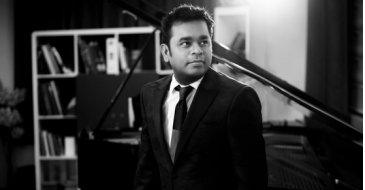
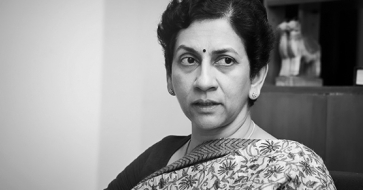
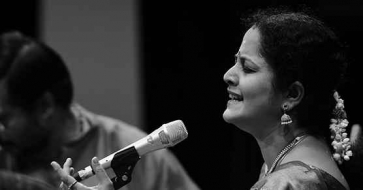
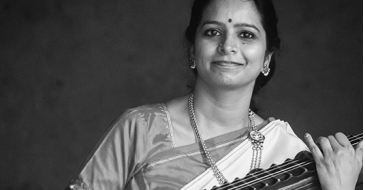
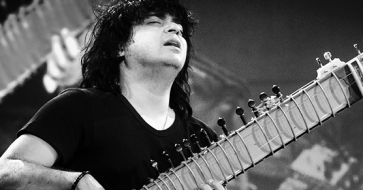
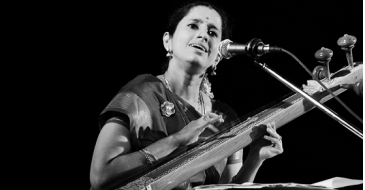
Srini.n
January 26, 2018
Ramani
January 24, 2018
Balasubramanian H
January 21, 2018
Mythili Krishnan
January 20, 2018
Madhva Muni Rao.Sandhyavandanam
January 20, 2018